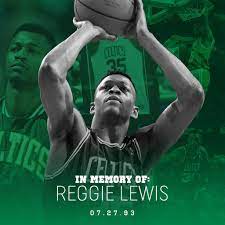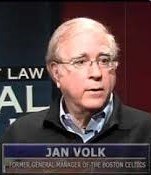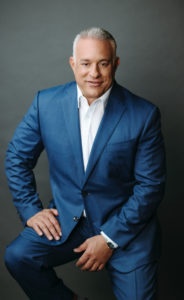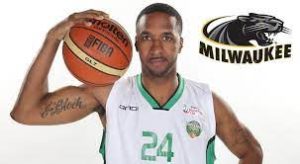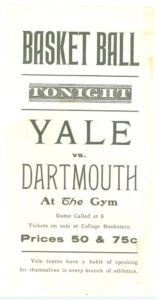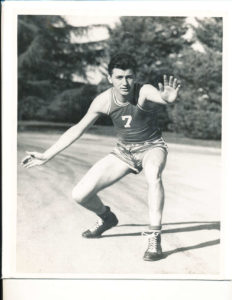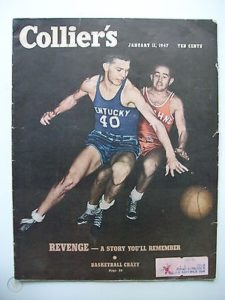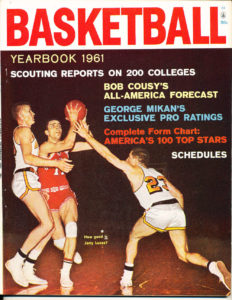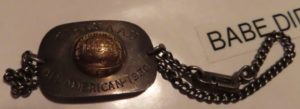Basketball coaches can teach their players almost anything…except size. 7-footer John Edwards made the 2002 Elite 8 as a big man at Kent State, and in 2004 he was named 1st-team all-conference and MAC DPOY. He spent a couple of years in the NBA and then several more years playing pro basketball in the D-League/overseas. HoopsHD’s Jon Teitel got to chat with John about his incredible postseason run in 2002 and being a great defender. Today is John’s 41st birthday so let us be the 1st to wish him a happy 1!
How were you able to make the Kent State team as a walk-on, and did you consider going to any other schools? I did not really play much before my junior year of high school. I went to a small school near Warren, OH, for most of my life and did not even make the JV team as a sophomore, but decided that it was worth trying out again as a junior. I transferred to Hudson High School that year and made the JV team. I played a whole lot and had a great coach who really made it fun for me. We went to team camp at Kent between my junior and senior year, which is when Coach Gary Waters and his staff 1st became interested in me. They invited a bunch of us to come to “open gym” and I was the only 1 to show up so they knew that I really wanted to play and get better. I hardly played during my senior year on the varsity and did not have any other D-1 offers. Coach Waters offered me a scholarship for 4 years if I came to school as a “preferred walk-on” and redshirted during my freshman year. Since there was nothing else out there at the D-1 level, my decision was basically made for me. Looking back, even if I would have had other offers I probably would have ended up at Kent. We had such a great group of guys the whole time I was there so I would not change anything.
1 of your teammates was Antonio Gates: how good a basketball player was he back then, and could you ever imagine that he would become 1 of the greatest tight ends in NFL history? Antonio is 1 of those guys who is so athletic that he would be very good at almost any sport he played, but basketball/football were his 2 best. I will let his numbers in 2 years at Kent (18.1 PPG/7.9 RPG/3.3 APG) as well as all of the accolades he was awarded speak for themselves regarding his talent as a basketball player. The thing that made him even better though was how unselfish he was. A lot of guys are really talented but you know that they are going to try to do everything themselves, which makes them that much easier to guard. You had to be ready for anything when you were playing against ‘Ton. A funny story about his football skills: the summer between my freshman and sophomore years was when Coach Stan Heath came in from Michigan State. My parents had moved to Grand Rapids (1 hour away from East Lansing) so I lived there in the summer. Coach Heath had me come over for open gym while I was home and I met a guy who knew ‘Ton from when he went to Eastern Michigan as a freshman. I did not even know that Antonio was transferring to Kent or who he was or anything. The guy described ‘Ton as follows: “He is a heck of an athlete and a great basketball player, but on the football field he is unbelievable. Basically, he is playing basketball for fun because in 3 years he will be in the NFL.” I wrote the guy off until I actually met Antonio…and then I could definitely see what he was saying! ‘Ton used to tell me the same thing all the time: he played basketball because he loved it…but he knew that his career was going to be in the NFL.
Take me through the 2001 NCAA tourney:
Trevor Huffman scored 24 PTS in a 4-PT upset over Indiana: how big a deal was it to get the 1st tourney win in school history, and how were you able to pull off the upset? I was just a freshman. I guess it was good for us because having that experience right out of the gate meant that we kind of expected it from that point on. There was no surprise for us when we beat Indiana. Our team was extremely close, we all relied on one another, and we really gelled: that was the trademark for all of the teams I was on at Kent. Coach Waters instilled that in us from day 1 and we carried it through 5 years (for me) and 3 different coaches. More than anything, I think the tourney that year was a result of all our hard work, but also what really jump-started the Kent program to get to the level it was (and still continues to be to this day). It was a really big deal looking back on it, but at the time we took it in stride and actually expected it. I never took the court at any time expecting anything less than a win. Coach Waters/Coach Heath/Coach Jim Christian all expected us to win every game and believed in each of us that we could get it done. At the same time we all believed in one another. When each person has 15-20 people believing in them, it is hard for that person not to believe in themselves. It also propels you to play at a higher level so that you do not let any of your teammates/coaches down. I know that it was viewed as an upset but we never looked at it as such, either before or after the game. It was a great experience for me as a freshman. I think that getting a chance to play in that type of environment during my 1st year helped me get accustomed to the pressures that would be placed on me during the rest of my career. I think it also really helped give our whole team confidence for the tourney run the following year.
Jamaal Davis had 16 PTS/10 REB in a win by Cincinnati: were they just more talented than you, and what was the reaction like when you got back to campus? We thought that we could beat Cincinnati as well but they just got the better of us that day. When we returned to campus everyone was so excited that we had just gone to the tourney. When we actually won a game, everyone was unbelievably excited and nothing could have taken that away. We were disappointed that we lost the game because we thought that we should beat everyone, but all of our fans and the people on campus were so happy for us: it was a great feeling. That Cincinnati team had a lot of talented players but so did we: I just think that on that day they got the better of us. Cincinnati was a very big/physical/athletic team. On top of that, they were all very experienced. I think perhaps we also were still on a high from the 1st round win. Looking back on it, it was a hard match-up for us and it just was not our time to win. I will gladly take that loss, as I think that it prepared us and made us that much hungrier for the tourney in 2002.
Take me through the magical 2002 NCAA tourney:
Demetric Shaw scored 21 PTS in an 8-PT win over Oklahoma State: what did you learn from the 2001 tourney that helped your team in 2002? It was the next step from what we had started in 2001. In 2002 we had Coach Heath (who had gone deep in the tourney with Michigan State) so he was able to give us a different perspective. He was very excited about the draw we got and felt like we really had a chance to make it past the 1st 2 rounds. It is funny because I never thought about it when we were playing or even while I was in school, but that year we could have been considered 1 of the 8 best teams in the nation and only 1 win away from the Final 4. I think during the tourney we were all just living in the moment and focusing so much on the games that we never really got caught up in what we were accomplishing at that time. I think that any bit of “starry eyes” we had in 2001 were totally gone by 2002. Between our attitude as a team and Coach Heath’s insistence that we had a great draw and a good path deep into the tourney if we could handle our business, it was a dangerous combination. We had gone from a team that believed in ourselves to a team who dared someone to tell us that they did not believe in us…and if that was the case then we would make sure from the sound of the horn to teach them just how wrong they were! We had a great team with good senior leadership. We also all knew our individual roles and played them well. There was no one who was upset with his role and I think that allowed us to have a much easier path to success. The coaching staff prepared us very well for the games so everyone knew what the game plan was and we were able to execute pretty well. I think by then we had learned the format of how things work and were also able to know what to expect in terms of media/schedules/preparation. We felt like we got a really good draw in Oklahoma State and were able to really come out and execute what we wanted to do almost to a T.
You had 6 REB in a win over Alabama, the 20th straight win for your team that season: did it reach a point where you just expected to win every time that you stepped onto the court, and how far did you think your team was going to go in the tourney? The Alabama game was when it really hit a lot of us. We were about halfway through the game and some of the Tide players were getting frustrated because they were not beating us handily like they thought they would. I am sure they never expected to get much of a fight from us but we had plenty. When they made it to halftime and it was not a cakewalk like they thought it was going to be, I think that is when the momentum swung both for us and for that game. While they were getting mad at the officials, or themselves, or each other, we just continued to stay on the same wavelength/click with 1 another, and the game really started to become easier. That was when we really thought we were going to keep moving on. I do not think that any of us realized exactly how many games we had won in a row: all we were thinking about was winning the next game and advancing.
Gates scored 22 PTS in a 5-PT OT win over Pitt (Julius Page scored 18 PTS, but missed a 3-PT shot at the buzzer in regulation): how close did you come to losing that game? It was close…but even though we were worried at times we never thought that we would lose. Pitt had a great team and actually matched up with us as well as anyone else we played all year. Antonio along with all of our seniors put in outstanding performances and really were the reason that we came out on top. Coming out of that game we thought that we were going to the Final 4. We thought that the game got away from us in regulation so when we made it into OT we felt like it was our chance at redemption. We were able to come out and finish things the way we felt they should have been finished during regulation. We were never “star-struck” but by that time we definitely did not feel much pressure. We looked at it as 5 more minutes of time to show how much better we were than our opponent.
Kent State became the 1st MAC school to get to the Elite 8 since the tourney expanded to 64 teams in 1985: what kind of praise did you get from the other MAC schools, and did you still feel like a “Cinderella” after getting that far? I think the “Cinderella” tag was imposed on us more by other people than by ourselves. We never went into a game with a mentality of “I hope we win”. In terms of other MAC schools, we had somewhat been “the team to beat” in the conference for a few years and after this the bullseye on our back got even bigger. We always got everyone’s “A” game because we were never the underdog and teams would come out looking to prove that they were better than us.
You scored 6 PTS in a loss to eventual national runner-up Indiana: what is your favorite memory from that March, and what was the feeling like in your locker room afterwards? The locker room was bittersweet: we were all mad that we lost and the seniors were sad because their careers were over. The rest of us were sad for the seniors that they did not make it further, but at the same time we all realized what we had done and how special it was. My favorite memory is all of the time we spent on the road as a team. We were really close and still are to this day. There are so many stories from that tourney: I would not trade that time for anything. If someone said that we could have won the title but to do so we would have to all hate one another, I would have kept it just the way it was and would not change a thing. I am sure that the Hoosiers wanted to avenge their loss from the year before…but I doubt that they thought they would do that by shooting 15-19 from behind the arc! It was definitely their night and they got the best of us: that was where our run was meant to end. There is not much you can do when a team is shooting like that: they made it very difficult for us to keep up.
In 2004 you set a school-record with 81 BLK in a season, were named 1st-team All-MAC, and were also named MAC DPOY: what did it mean to you to win such outstanding honors, and what is the secret to playing great defense? It was nice. It was not just a testament to me but to our whole team. I blocked a lot of shots and made it very tough for our opponents to do much in the paint, but I would not have been able to do any of that if all of my teammates did not help me when I was out of position after going for a block or box my man out if I had to switch to someone else. I guess that I was the most visible part of our defense by blocking shots, as well as the biggest guy on the court, but everyone out there with me had just as big of a hand in helping me to win that award. The secret to playing great defense is the same as the secret to anything else: hard work. If you are always playing as hard as you can it is contagious: your teammates see you playing hard and their energy level automatically increases. Now because of 1 guy all 5 are playing at a higher level. You just get used to it as a team: when you see someone dragging you help to pick them up, and when they see you dragging they help to pick you up. More than anything defense is a function of being a team. You cannot guard a whole team by yourself, but when you have 5 guys working together it can be pretty easy to succeed. Part of my role on the team was always shutting down the middle on defense. After a while, it became a goal of mine to try to block as many shots as I could since I was fairly good at it. It is a great honor to have “Defensive POY” on my resume and I do take pride in the fact that I won an award in an area where many players do not necessarily excel or take it as seriously as they do their offense.
You finished your career as the all-time leading shot blocker in school history with 179: did you realize at the time how prolific a player you were, and do you think that anyone will ever break your record? I am not sure but it does not matter to me. I have the record now but am sure that someone will eventually break it. I just hope when they do that they are able to be a part of a team that is as good as the ones that I was a part of. Without that, the defensive POY award, 1st-team all-conference, or any of the other things I achieved would not have meant nearly as much. I think if you talk to my /coaches they would say I am a pretty humble guy. I did a lot of things in school that I never really focused on or realized what I had done until well after the fact. I am sure that 1 day when I unpack all of my boxes from school with my trophies and awards to show my kids, then maybe it will set in. Until then I feel like I still have more to do even now: hopefully I can continue my success.
The Pacers signed you in 2004, and due to the rash of suspensions resulting from their infamous brawl during a game in Detroit, you ended up comprising the entire bench as they were only able to dress 6 players for their next game: what are your memories of the brawl, and how weird was it to field a 6-man team in an NBA game?! The fight was a surreal experience. While it was going on all we were really concerned with was getting inside the locker room safely and defending ourselves. The next game was crazy as well. Scot Pollard was dressed even though he could not play because the NBA required us to have 7-8 players dressed. It was all pretty odd but it was my 1st year in the league so I did not really know what to expect anyways. I can truly say that I have experienced some pretty interesting stuff when it comes to basketball! We were only a few weeks into the season when everything happened so I was still getting accustomed to the NBA life (travel, games, etc.). All of a sudden, we are involved in 1 of the most memorable fights in NBA history. We all got a pretty bad rap from that, which I can say from our best player to our last man on the bench was not justified. All of the guys on that team were great guys off the court. It was just a horrible situation to be placed in and we felt like we had to protect ourselves.
You also played for several teams in the D-League: what is the biggest difference between the D-League and the NBA? The D-League is a good place for guys who are on the verge of making it to the NBA, making it back in, or who are sent down from NBA clubs. There are also some guys who just do not like the overseas lifestyle. The biggest difference (aside from money of course) is that even though the NBA is selfish at times, there is a majority of team play going on. In the D-League, you have 10 guys whose 1 wish is to play well enough to get a call-up to the NBA. The guys that get called up are not the “glue” guys: the ones who dominate are the ones who get the looks. It is really hard to foster a team environment in that situation. It is not the fault of the players/coaches: it is just hard not to look out for yourself when your goal is to be the most visible guy on the court. I had my NBA opportunity and would have loved another one: I think that I would have done things much differently the 2nd time around. However, if everyone could play in the NBA then it would not be nearly as popular, and if everyone got a 2nd/3rd chance then it would be a lot more crowded there. When my career ended I was happy with what I had done. I would do things differently in parts, but what person would not change some things? Hindsight is always 20/20 after all. There is no comparison for anything to the NBA: the NBA is the greatest job in the world in my opinion so everything else pales in comparison.
You later played professionally in the Ukraine/Greece: what did you learn from these experiences, and how did they compare to the NBA? They were great. The NBA has much better athletes and more physically gifted players, but what the European leagues lack in physical gifts they make up for in team togetherness/fundamentals. I was fortunate to play basketball for a living: not many people are fortunate enough to play a game they love and get paid for it. Traveling the world for free because of it is just icing on the cake! More than anything I learned that there is life outside the NBA/America. There is more basketball to be played than just in the NBA. While it is the greatest league on the planet it is by no means the only league. The stigma is that if you play in the NBA you are great and if you play in Europe you are not great…but I can tell you that is 100% not true. I have seen some really great players overseas, whether they are American or European. Just because you are not in the NBA does not mean that you cannot play. Sometimes things do not work out the way you want them to or you are not ready for your opportunity when it arises. Believe me: once an opportunity passes it is hard to get it back. I think that going to Europe showed me that I should be happy with having become the player I am, and that whether I finished in the NBA/overseas/wherever I will always carry all my experiences with me as well as the understanding of the path I took to get here. I learned about European basketball and how to excel in an unfamiliar situation. Hardly anyone there spoke English, salaries were often late, venues were much smaller, and travel was not very luxurious…but it was still a good experience. I met a lot of guys who I still keep in touch with today and my family and I were able to see another part of the world that many Americans will never get the opportunity to enjoy.
When people look back on your career, how do you want to be remembered the most? I just want to be remembered as a guy who worked hard and went from nothing to something. I am fortunate to be where I am and can honestly say that everything in my career has played a part in me becoming who I am now as well as who I will be in the future. I wanted to coach when I was done playing and I think that my perspective on things from so many different angles along the way will help immensely with that. People will remember what they want to but I hope that none of them can say that I was not a hard worker who worked especially hard for everything he achieved. Throughout my career there were 2-3 times as many naysayers as there were supporters, but I will always have a great feeling about my career and what I was able to achieve. Hard work/effort really paid off for me: even though it sounds like a cliché it has really shown me that it is true and I go after every situation in my life the same way.


